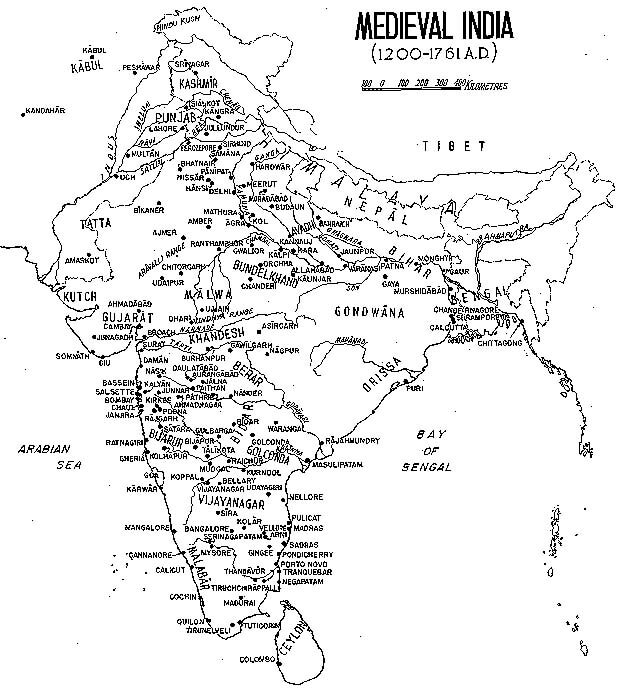Most Important Topics Of The History Of India For The WBCS Preliminary Exam
WBCS প্রিলিমিনারি পরীক্ষার জন্য ভারতের ইতিহাসের সবচেয়ে গুরুত্বপূর্ণ বিষয় গুলি
Each and every chapter is important since this is competitive exam. But year Modern India (1707–1947) and more specifically Indian National Movement is most important as almost 35/50 questions come from Modern India. History is the most important part in Preliminary Exam. You wont find any WBCS officer whose History knowledge is poor. Study History thoroughly, not onlythrough MCQs.
Indian History Chronology
Chronologically, Indian History can be classified into three periods – Ancient India, Medieval India and Modern India.Continue Reading Most Important Topics Of The History Of India For The WBCS Preliminary Exam.
Ancient India (Pre-historic to AD 700)

There were activities of proto-humans (Homo erectus) in the Indian subcontinent 20 lakh years (2 million years) ago, and of Homo sapiens since 70,000 BC. But they were gathers/hunters.
The first inhabitants of Indian subcontinent might have been tribals like Nagas (North-East), Santhals (East-India), Bhils (Central India), Gonds (Central India), Todas (South India) etc. Most of them are speakers of the Austric, pre-Dravidian languages, such as Munda and Gondvi. Dravidians and Aryans are believed to be immigrants who came later to the sub-continent.
Ancient India can be studied under other heads like Paleolithic, Mesolithic, Neolithic and Chalcolithic period – based on the type of stone/ metal tools people used.
Paleolithic Period (2 million BC – 10,000 BC)
- Fire
- Tools made up of lime stone
- Ostrich Eggs
- Important Paleolithic sites: Bhimbetka (M.P), Hunsgi, Kurnool Caves, Narmada Valley (Hathnora, M.P), Kaladgi Basin
Mesolithic Period (10,000 BC – 8,000 BC)
- Major Climatic Change happened
- Domestication of animals ie Cattle rearing started
- Microliths found at Brahmagiri (Mysore), Narmada, Vindya, Gujarat
Neolithic Period (8000 BC – 4,000 BC)
- Agriculture Started
- Wheel discovered
- Inamgaon = An early village
- Important Neolithic Sites : Burzahom(Kashmir), Gufkral(Kashmir), Mehrgarh(Pakistan), Chirand(Bihar), Daojali Hading(Tripura/Assam), Koldihwa(UP), Mahagara(UP), Hallur(AP), Paiyampalli(AP), Maski, Kodekal, Sangana Kaller, Utnur, Takkala Kota.
- NB: Megalithic Sites: Brahmagiri, Adichanallur
Chalcolithic Period (4000 BC – 1,500 BC)
- Copper Age. Can be considered part of Bronze Age. (Bronze = Copper + Tin)
- Indus Valley Civilization (BC 2700 – BC 1900).
- Also cultures at Brahmagiri, Navada Toli (Narmada region), Mahishadal (W.Bengal), Chirand (Ganga region)
Iron Age (BC 1500 – BC 200)
- Vedic Period (Arrival of Aryans ie. BC 1600 – BC 600) – Nearly 1000 years (Basic books of Hinduism, ie Vedas were composed, might have written down later.)
- Jainism and Buddhism
- Mahajanapadas – Major Civilization after Indus Valley- On banks of river Ganga
- Magadha empire – Bimbisara of Haryanka Kula
- Sisunga dynasty – Kalasoka (Kakavarnin)
- Nanda empire – Mahapadma-nanda, Dhana-nanda
- Persian- Greek: Alexander 327 BC
Mauryan Empire (321-185 BC)
Important rulers of Mauryan Empire: Chandra Gupta Maurya, Bindusara, Asoka
Post-Mauryan Kingdoms (Middle Kingdoms):
- Sunga (181-71 BC), Kanva (71-27BC), Satavahanas (235-100BC), Indo-Greeks, Parthians (19-45AD), Sakas (90BC-150AD), Kushanas(78AD)
- South Indian Kingdoms – Chola, Chera, Pandyas (BC 300)
Gupta Kingdom (300AD – 800AD): Classical Period
Important ruler of Gupta Period: Samudra Gupta (Indian Napoleon)
Post Guptas or Contemporary Guptas
- Harshvardana, Vakatakas, Pallavas, Chalukyas. Also, Hunas, Maitrakas, Rajputs, Senas and Chauhans.
Medieval India (AD 700 – AD 1857)

- AD: 800-1200: Tripartite struggle – Prathiharas, Palas, and Rashtrakutas
- Attack of Muhammed Bin Kassim (AD 712)
- Rise of Islam and Sufism
- Mohammed Ghazni (AD 1000-27)
- Mohammed Ghori (AD 1175-1206)
Delhi Sultanate (1206 AD – 1526 AD)
The following dynasties flourished one after the other during the Delhi Sultanate period.
- Slave Dynasty
- Kilji Dynasty
- Tuglaq Dynasty
- Sayyid Dynasty
- Lodi Dynasty
Mughals (AD 1526 – AD 1857)
- Great Mughals
- Later Mughals
Mughals from Babar (1526) to Aurangazeb (1707) were more powerful and hence known as Great Mughals. Mughals who ruled from 1707 to 1857 were known as Later Mughals.
- Arrival of Europeans
- Other Kingdoms of North India – Marathas, Sikhs
This Part of Modern India (AD 1857 +)- Most Important
- First War of Indian Independence (1857)
- Formation of Indian National Congress (1885)
- Formation of Muslim League (1906)
- Non-Co-operation Movement (1920)
- Civil Disobedience Movement (1930)
- Quit India Movement (1942)
- Partition of India (1947)
- Constitutional Development of India (1946 – 1950)
- Economic Development of India
- Wars – India-Pak – Formation of Bangladesh; India- China
- New Economic Policy of 1991
- Nuclear, Space and Defense Development
Our own publications are available at our webstore (click here).
For Guidance of WBCS (Exe.) Etc. Preliminary , Main Exam and Interview, Study Mat, Mock Test, Guided by WBCS Gr A Officers , Online and Classroom, Call 9674493673, or mail us at – mailus@wbcsmadeeasy.in
Visit our you tube channel WBCSMadeEasy™ You tube Channel
Please subscribe here to get all future updates on this post/page/category/website



 Toll Free 1800 572 9282
Toll Free 1800 572 9282  mailus@wbcsmadeeasy.in
mailus@wbcsmadeeasy.in


















































































































